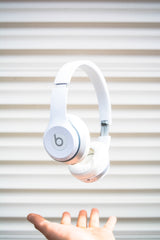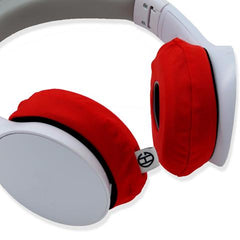Will Exercise Help a Hangover?

Rolling out of bed to go to the gym can be tough any day of the week, but what about when you’re hungover? Will exercise help a hangover or are you always better off dying quietly under a duvet on the sofa?
Can Exercise Help a Hangover?
Exercise can’t cure it. Unfortunately, you can’t sweat your way out of a hangover.
According to exercise expert E. Todd Schroeder, less than 1% of the alcohol you’ve drunk is released through the pores in your skin. And talking to Cosmopolitan, Mark Leyshon agrees, ‘No amount of exercise can reduce the effects of a hangover.’ He then adds that it’s better to drink plenty of water rather than trying to exercise vigorously. It’s nice to be let off the hook, right? Stay under those covers, order that takeaway, binge that entire season on Netflix. But it’s not quite that simple.
Exercise comes with a lot of benefits and even those of us who struggle to get to the gym will realise that. You feel better after exercise. We know during physical activity the body releases neurotransmitters and hormones that make us feel happier and better. And that happens even if you’re hungover.
So, whilst exercise isn’t the magical cure you hoped it would be, it can help reduce the symptoms of a hangover. That’s at least what happened to Mandy Valez. She wrote about her experiences of exercising after a big night out for Inverse. Valez documented her workout the morning after and admits that she felt better once afterwards. Although, spoiler alert, whilst she felt great after the Stairmaster that wasn’t always the case during a downward-dog yoga pose. Pick your exercise careful. The fact that she’d had a large glass of water after drinking and before exercising probably helped.
Men’s Health also ran an online article in which the co-founder of a popular fitness company said that if you’re exercising with a hangover then ‘the key is to get your heart rate up and your muscles burning’ but only enough for the body to release some of those feel-good hormones. This means that you can reap the benefits even during a relatively gentle session.

So, is it still worth exercising when hungover?
It depends. It depends on your gender, weight and height. It also depends on how much you were drinking, what you were drinking, and how hydrated you are. Even the type of exercise you’re thinking of doing can make a difference, too.
We’ll break it down a little.
When you’re hungover, you’re dehydrated. It’s one of the reasons why you feel so rough the next morning. Exercising from a dehydrated state isn’t a good idea (true whether you’ve been drinking alcohol or not). If you are planning a short workout session, make sure you’ve had plenty of water. This will make you feel better during and afterwards.
Physical activity feels harder when you’ve been drinking. Stylist writes about a 2020 study published in the Journal of Clinical Medicine. It found that hungover participants found physical activities more exhausting than the non-hungover participants. Any exercise you do will feel harder and more exhausting than usual. That’s why it’s a good idea to keep things gentle. Brisk walking can be a good idea. It’ll get your heartrate up without putting you under too much stress. Yoga stretches or some simple weights may help, too. Accept that you’re probably not going to break any world records when you’re feeling rough.
It’s not just physical tiredness and difficulty moving that can be problematic. Mental fatigue is a common effect of alcohol. Whilst this isn’t to be encouraged, it is interesting that one study by Boulder University found that when alcoholics exercised, they lost less white matter in their brains than their non-exercising alcoholic peers. Exercise could help mitigate some of the cognitive loss expected from heavy drinkers. Now that’s not something pursue as a lifestyle strategy, but it does suggest that exercise may help reduce the mental fog in chronic alcohol abusers.
Why Exercising Whilst Hanging Isn’t Great
- Talking to the independent, PT Ian Streetz, explains how protein synthesis is lower after alcohol so it’s harder to build new muscle and recover effectively when you’ve been drinking. If you’ve consumed a lot of alcohol, then it will take time to get out of your system.
- Alcohol stops you from sleeping as well. This can make you feel tired even when you’ve had a sufficient amount of rest. Tiredness doesn’t just make you feel bad but it also affects form and focus. Exercising when you’re tired can be more dangerous. Especially for runners or weight lifters. It can make you prone to injury. If you’re too tired to exercise safely, then it’s best to skip that day and start again fresh next session.
- It’s not just because of a lack of sleep. You could lose balance and coordination during a hangover. Very Well Fit calls this ‘brain fog’. If you’ve been hungover at work or at a social event, then you’ll no doubt recognise this. It’s hard to concentrate when you’re hanging. Your head just isn’t in the zone. It’s going to make exercise feel more exhausting and less enjoyable. It’s OK to skip one day or to dial the intensity down.
Life happens. You go out and you drink too much. You’ll probably swear that it’ll never happen again...it probably will. Try rearranging your exercise schedule so that you’re not exercising the day after a big night out. Try reducing your alcohol intake on the nights that you can’t. Remember that skipping one session isn’t the end of the world. It’s realistic. Learn the lesson but don’t panic. The important thing is not to let one session turn into two or three. Get back onto the horse (or the treadmill or the bike) and keep exercising.
One thing to remember is that hydration is key. Try and drink water between alcoholic drinks when you’re out. Drink water before bed. Drink water when you get up and throughout the day, and especially before exercise.
Water is important for our bodies but it’s not great for our headphones. That’s why smart gym-goers use moisture-wicking headphone covers. It helps prevent sweat staining, stinking up, and destroying earpads.






